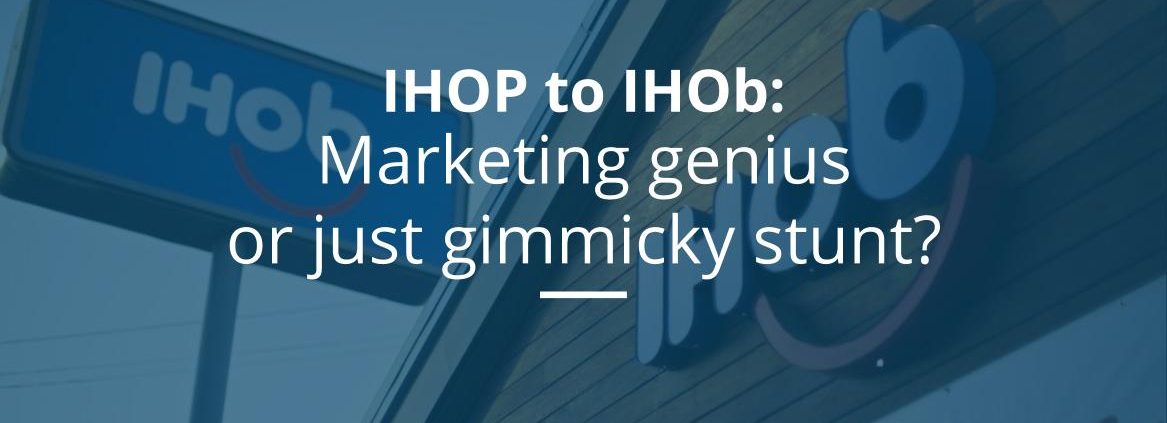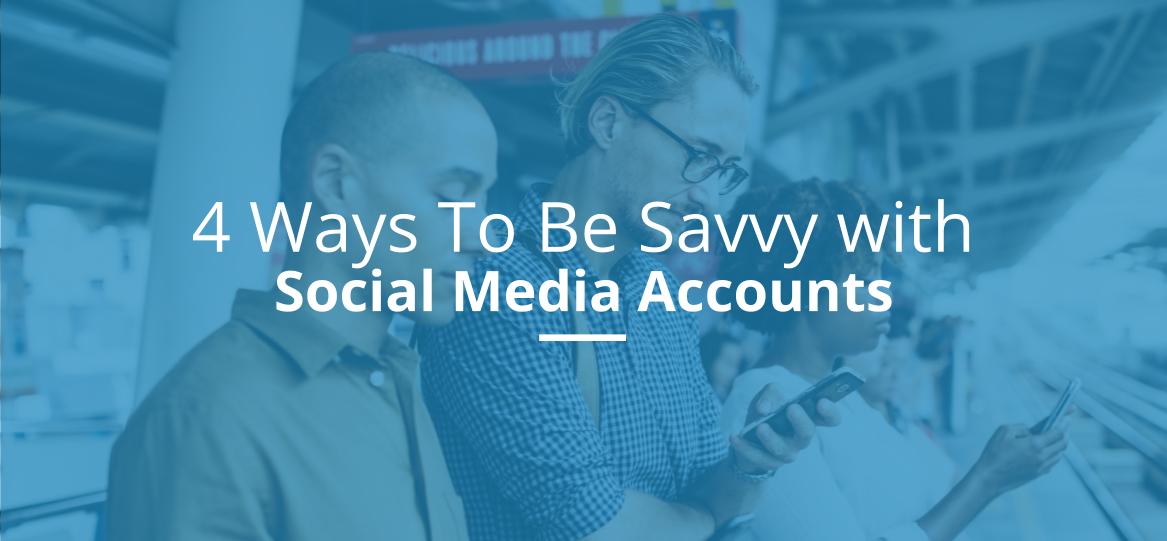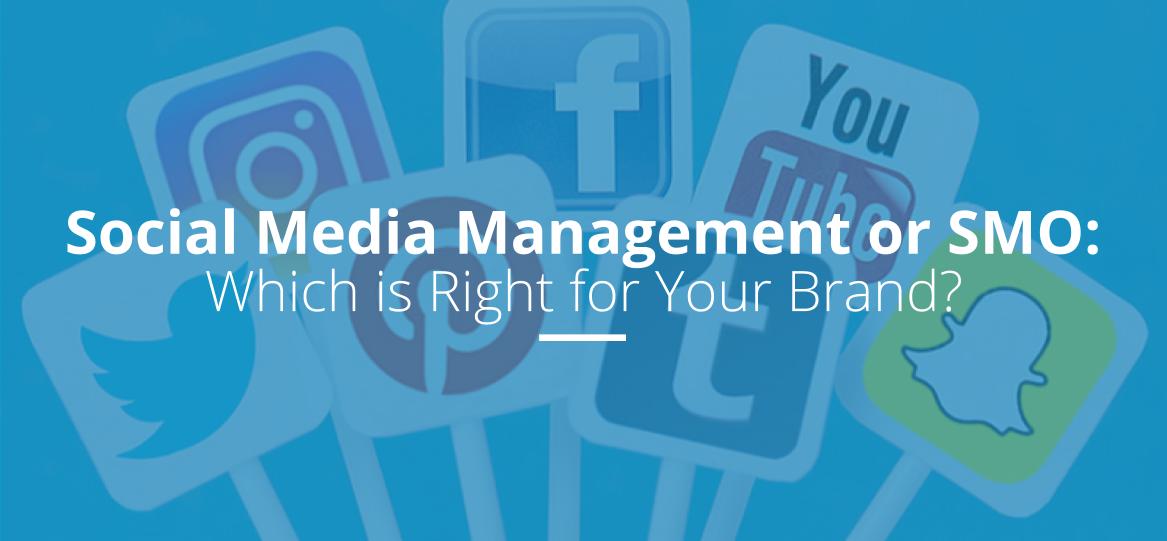IHOP to IHOb: Marketing genius or just gimmicky stunt?
The International House of Pancakes (IHOP) recently temporarily changed their name to IHOb to promote their new line of hamburgers (‘b’ for ‘burger’ instead of ‘P’ for ‘Pancake’).
For all intents and purposes, the just inverted their capital P to a lowercase b on one store sign and on their Twitter account, but it caused quite a stir. We’re tackling whether the move was a smart one, and we’re doing it before the dust settles on whether it helps or hurts their bottom line.
Is IHOb really about marketing, or just publicity?
When IHOP released the teaser that they would be changing their name, most people assumed it would be the International House of Breakfast or Brunch, but to the public’s surprise, ‘B’ stands for ‘burgers.’ If you’ve been on the internet recently, you’ve possibly seen the plethora of jokes over the name change, mostly negative towards this marketing move and making fun of the breakfast diner.
Without a doubt, this name change has brought attention to the company, but is all publicity good publicity? “Changing the name, even if it’s a little bit gimmicky, does bring traffic and attention to the stores,” said Stephen Anderson of the Maxim Group, according to CNBC. He may be operating from an assumption, and it’s an assumption that isn’t grounded in what we know about the target audience.
While some truly believe that store traffic will increase, this silly, time-sensitive move makes IHOP the target for jokes that may damage the overall image while the economic benefit is yet to be seen.
Who is the IHOb name trying to reach?
The current target audience for IHOP includes largely college students and senior citizens, both of whom want access to breakfast food all day and the diner experience that IHOP offers.
Seniors aren’t very likely to see the twitter uproar or the marketing effects of the name change so this campaign doesn’t affect them, but the college student age demographic has made uproar in disappointment, turning IHOb into an internet joke and meme.
One twitter user @_kaicealea even said “I have never. Not once in my life, gotten a burger from IHOP. And I never will.” This brings up the point of brand confusion. Existing customers visit iHop for their trademark items like pancakes (among other breakfast food), so even with a publicity stunt, it can be argued that IHOP will still be seen as a breakfast venue and that this will not affect buying behavior, and existing customers will seldom try the new marketed item.
Another thing to consider is that the name change will very unlikely cause people who aren’t already customers to want to travel to IHOP for a burger. While we’ve discussed the issues of existing customers for IHOP increasing burger-buying behavior, those who don’t already dine at IHOP are very unlikely to go to the restaurant to eat a burger when there are several other places known for their burgers, not their breakfast food. Activating new audiences with IHOb is very unlikely to come from this stunt.
Maybe IHOb is about low perceived risk, high possible reward
In all likelihood, the need to market the burgers probably came from one of the bosses, and marketing simply had to come up with a plan to promote the change. One team decided to add burgers to the menu, the boss said to market that menu change, and the marketing team had to deliver.
They did what they had to, and they chose a publicity stunt. As some argue, though, is this marketing stunt possibly brilliant?
Granted, this is just a temporary change that they aren’t actually spending millions of dollars on rebranding. Before launching this campaign, there’s a good chance that IHOP marketers said to themselves, “It’s low cost, and we’ll be in on the joke even if it goes viral. Best case scenario, we sell more burgers because people think it’s fun, worst case scenario, nobody notices.” Some analysts agree that this change is bringing more attention to the specific menu item itself, but we argue branding is far more important for a national chain.
The problem is that IHOP underestimated the risk. This marketing maneuver has a very good chance to hurt IHOP’s brand, as customers and the public won’t even take them seriously anymore as a breakfast diner. Without a doubt this has caused major buzz, however, all publicity is not good publicity for long-term success.
It is yet to be determined if there is actual financial benefit from this marketing stunt, but it has given a clear view of the new public image of IHOb. Whether they stay the butt of the joke, or evolve into a new go-to burger joint, IHOb surely became a hot-topic of conversation.




